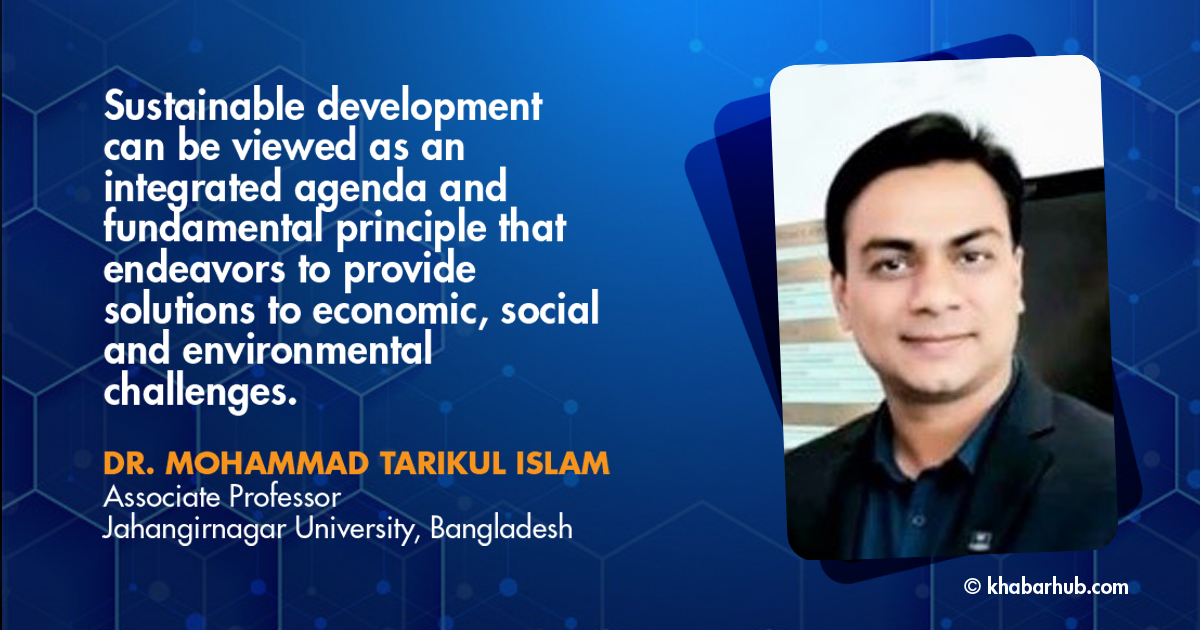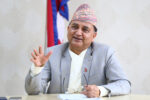Countries are now turning their attention to how to restart the economy and generate jobs while dealing with the looming challenge of public health posed by the COVID pandemic.
Sustainable Development Goals (SDGs) can serve as an anticipatory remedy against future shocks by pushing countries to adopt more equitable and sustainable policies moving forward.
To what extent, can the developing countries figure out comprehensive plan preparation amid the COVID pandemic to accelerate localizing SDGs as the underlying principle of the opinion?
Sustainable development can be viewed as an integrated agenda and fundamental principle that endeavors to provide solutions to economic, social and environmental challenges.
The 2030 agenda for sustainable development emphasizes the need for an inclusive and localized approach. It states that governments and public institutions will also work closely on the implementation of sustainable development goals (SDGs) with regional and local authorities, sub-regional institutions, international institutions, academia, philanthropic organizations, volunteer groups and others.
There is growing awareness, recognition and acknowledgment by the international development community and national governments that the local sphere of government is in the best position to facilitate the mobilization of local development stakeholders, notably the non-government organizations and private sectors, local communities, and national and international organizations, for attaining inclusive sustainable development within their respective localities.
Past progress in promoting decent work (SDG 8), increasing access to quality health care (SDG 3) and ensuring internet access for school and work (SDG 9) help mitigate the severity of adverse impacts.
The reality suggests that the pandemic has shown us the importance of being prepared collectively when crises hit. Only such an approach can deliver win-win policies for people, the planet, and prosperity.
This pandemic also provides us with the opportunity to take a comprehensive look at the sustainability of our environmental, economic, and social systems to create more resilient societies emphasizing the proper implementation of SDGs.
The SDGs emphasize the need for an inclusive and localized approach where the promise to leave no one behind is embedded at the heart of the local government.
Achieving SDGs requires contextualizing development priorities and programming while local government is the best fit for implementing policies and programs for improved service delivery that can address poverty, reduce inequality, climate vulnerability, promote gender equity.
Participatory grassroots local government is indispensable for delivering on SDGs, particularly in poor and marginalized areas. Unfortunately, it is far from being a reality in most of the developing countries.
For example, best practices recognized by the international community—like standing committee, project implementation committees, grassroots political participation, or open budget discussions—are not widely employed in local governments.
Moreover, the COVID pandemic has certainly intensified the vulnerabilities of local government bodies to deliver the best in attaining SDGs.
The statistical evidence suggests that an additional 10 million of the world’s children could face acute malnutrition in light of Covid-19, and the number of people facing acute food insecurity may almost double relative to 2019, rising to 265 million.
School closures have affected over 90 percent of the world’s student population—1.6 billion children and youth.
More detailed data on the world’s sustainable development efforts was announced on 7 July 2020 in the Sustainable Development Goals Progress Report 2020.
Decisions taken now on whether to return to the pre-pandemic world or build towards on that is more sustainable and equitable will help shape future outcomes.
If coronavirus responses are ad-hoc, underfunded and without a view to long-term goals, decades of progress toward sustainable development stand to be reversed.
As COVID-19 upends lives and livelihoods across the country, governments must stress a range of multilateral solutions to ease the pain, while also getting back on track towards achieving SDGs.
If the 2030 global agenda is implemented at the local level on the basis of partnership with people of all segments of society, a massive socio-economic, environmental and ecological development will occur and the targets of SDGs will then be easily achieved.
SDGs localization plan would be a quick-yielding remedy to counteract the Covid-19 fallout both in the medium and long term.
A clear institutional framework with reinforced management and planning capacities, participatory mechanisms and regular financial negotiations between all levels of government and local communities in the developing countries is crucial to define priorities within SDGs and plan of action accordingly.
Past progress in promoting decent work (SDG 8), increasing access to quality health care (SDG 3) and ensuring internet access for school and work (SDG 9) help mitigate the severity of adverse impacts.
To defend against the worst effects of COVID-19, developing countries should prioritize action in three areas for reviving their efforts to attain SDGs: protecting progress already made towards the SDGs; accelerating the universal provision of quality basic services; and maintaining the environmental gains of this period.
In order to enforce the above-suggested action in three areas, strengthening local government in developing countries is perhaps the only viable solution by which the national government can translate policies into inclusive development and prosperity.
The government of the developing countries must strive to foster dialogue with all stakeholders mobilizing a multi-level stakeholder, which can accelerate the collective efforts, while setting enabling national frameworks that empower local actors to develop and lead their strategies aligned with the SDGs.
A clear institutional framework with reinforced management and planning capacities, participatory mechanisms and regular financial negotiations between all levels of government and local communities in the developing countries is crucial to define priorities within SDGs and plan of action accordingly.
In conclusion, a strong local government with adequate resources, a delegation of authorities and a positive mindset of the political leaders in the developing countries severely affected by the COVID pandemic is a must for localization of SDGs and improved governance at the grassroots level.
(Dr. Mohammad Tarikul Islam is an Associate Professor of the Department of Government and Politics at Jahangirnagar University in Bangladesh. He is the Visiting Scholar of Oxford and Cambridge. Prior to joining the university, Dr. Islam was serving the United Nations for a period of seven years. As a popular development columnist in South Asia, Professor Islam writes for the Khabarhub, the Daily Star, the Daily Independent, the Financial Express, The Business Time, Daily Jugantor and South Asia Monitor regularly)









Comment